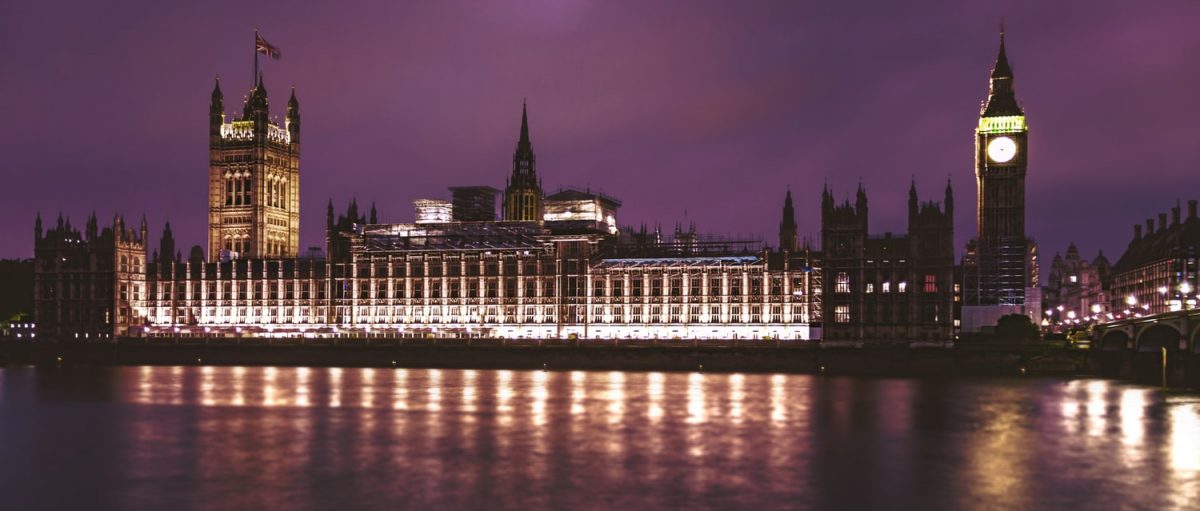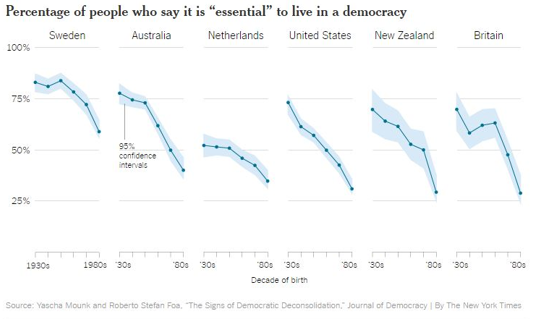Teetering near the cliff edge, Britain has never looked closer to a no-deal Brexit. That or a second referendum and regular readers will remember Principled Politics believes a ‘People’s Vote’ should absolutely not happen, in the name of democracy.
But, putting aside the temporary mess in Westminster, we must look to the long-term. What lessons can we learn from the past two years? What one thing should we take away from Brexit, the referendum and the chaos that has surrounded us?
One thing stands out- and it is not that buses with slogans can change the course of history. No, it is that Britain needs a civic course on the curriculum.
The level of misinformation and uneducated opinion that was spouted throughout the EU referendum, on both sides, reveals the degree to which the electorate has little understanding of how the UK political system works.
Whether it was Leavers’ believing that the full £350 million was up for grabs (a simple history lesson on Thatcher’s rebate would have settled this), or Remainers believing that Brexit would lead to a European war (not kidding, David Cameron suggested this on the 9th May 2016), both sides fell into the trap of believing dubious lies about the EU.
If leaving the EU will lead to war, why did David Cameron choose to hold a referendum on it?
— Tim Stanley (@timothy_stanley) May 9, 2016
More precisely, in an Ipsos MORI poll from June 2016, 20% of those surveyed believed MEPs to be unelected and just over half knew they were, in fact, elected officials.
Even now, half of Theresa May’s difficulties in Parliament arise from the fact she promised the electorate a unicorn and in reality, can only produce a donkey with an aerosol can taped to its head. A lack of education set the Brexit bar far too high, leaving the government- and the country- in high water.
To me, it is madness that in the twenty-first century, we still expect the electorate to make sensible decisions for the UK, without having the necessary education. We are yet to take the blindfolds off the group playing cards, yet to remove the musician’s earmuffs. We are yet to educate the voter.
An understanding of the UKs political system should be made compulsory in schools, similar to how students must get at least a C in maths and English to move beyond their GCSEs.
Where do new laws come from? What do Select Committees do? 🤔
Use our booklet with your 14-16 year old students so they can get to know their @UKParliament! #citizenship #modernstudies
Order FREE copies for your class today!
👉 https://t.co/P1gs0oP5D4 pic.twitter.com/7nRVkpXri5
— UK Parliament Education (@UKParlEducation) December 17, 2018
Regardless of whether a citizen chooses to participate in our democracy, political policies affect everyone- through taxes, regulations and government policy.
When you use the NHS, the quality of treatment you receive stems from the government’s policy on healthcare funding. When schools increasingly spend less and less on your child, this is a direct result of the amount given by the government to councils. In everyday activities, politics is deeply influential and must be understood on some level.
In December 2016, Jason Brennan wrote ‘Is this the end of democracy?’ for the New Statesman, in which he argued that:
“voters nearly always lack the necessary knowledge. They are not just ignorant; they are misinformed. Democracy is the will of the people, but the people usually have little clue what they are doing.”
It is ludicrous that up until this point, such an important piece of education has been missed.
Yet, there are several criticisms of compulsory civic education.
The first is that politics is for the metropolitan elite. Most people have no desire to change politics in any means, shape or form. People do not want to learn about politics, period.
Yet, my answer to this is that whilst I hated my maths lessons, I am glad I had them. Whilst Pythagoras’ Theorem has yet to come in handy, an elementary understanding of mathematics has proved useful to me time and time again, regardless of how ‘irrelevant’ it is to a history undergrad.
Politics is similar to the basics of our curriculum: maths, sciences and English. It can often be tedious, dry, and seemingly irrelevant in equal measure. But it is essential knowledge for making decisions that affect our lives: over how well our illnesses are treated, how our old people are looked after, whether we can afford to buy a house and how much tax we must pay. To say a knowledge of politics is not necessary is to willingly embrace ignorance and therefore, powerlessness.
A second criticism to be made of civic education is that this could be easily be violated, with a government setting a partisan curriculum, causing a generation to be taught biased values.
But the reality is that neither Conservatives nor Socialists, Liberals nor Nationalists of the British democratic tradition have ever advocated indoctrination as a useful means of education.
It would be perfectly possible for students to receive a nonpartisan political education, of the sort I chose to take up in sixth form. In the same way students are taught about Catholicism and Protestantism, it does not convert them but simply opens their minds.
Even if individual teachers were to have a political sway, students at school do not take teachers at their word- the amount of backchat I have heard thoroughly reassures me. Schools are places where students question values and teach themselves new ones- from books as much as from teachers.
Having an educated electorate would benefit political participation in this country.
No general election since 1997 has been able to achieve a turnout of 72%, a figure consistently surpassed for the 50 years before 1997. In the second half of the twentieth century, participation was consistently high, now it is disappointingly lower.
Educating the electorate just might solve this real democratic problem.
An understanding of what goes on in Westminster might stop MPs from being dismissed as elitist individuals in a confusing world. It would unlock an understanding of the way the world works around us. If people understood politics, it would not seem so boring nor so irrelevant.
Fundamentally, if everyone knew what the Single Market was, if everyone understood that Parliament is sovereign as stated in our constitution (yes, we do have a constitution) and if everyone understood how unproportional First-Past-The-Post was, we might have a real chance of rejuvenating politics and even bringing about real change.
Brexit revealed that no part of the electorate was safe from misinformation and misunderstanding. It is time the UK introduced a compulsory civics course to return power to the people.
Featured image: Principled Politics
Would compulsory political education benefit UK students and the electorate? Drop your thoughts in the comments below!



